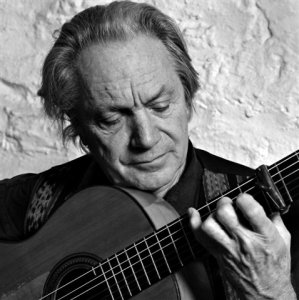| The Park’s
The Other Festival - 2005
Music. Dance. Drama. Art. You. The Museum Theatre, Chennai |
 |
| Dec
4, 2005
Music
by Flamenco Guitarist Pedro Soler from France (in association with Alliance
Francaise)
|
|
Pedro Soler Born in 1938, Pedro Soler began playing guitar with the exiled Andalusian refugees who came to Toulouse after the Spanish Civil War. He gained experience by performing in flamenco companies and later, by accompanying celebrated flamenco singers and dancers, all which led to his present solo career.
Pedro Soler has also accompanied other famous singers such as Juan Varea, Enriaue Morente, and the very respected Pepe de la Matrona, with whom he has held numerous recitals. He has also accompanied distinguished flamenco dancers, such as Carmen Amaya, La Chunga, and especially La Joselito, who introduced him to the intricate world of flamenco dance. Pedro Soler has performed as a soloist throughout Europe, South America, Japan, Russia, and Africa. In Paris, the Salle Pleyel and the Theatre des Champes Elysèes have welcomed him, and in London he has appeared at Wigmore Hall and Queen Elizabeth Hall. Having recorded for RCA Victor, Decca, Le Chant du Monde and CBS, he was awarded the Prix International du Disque of the Charles Cros Academy in 1964, and the Great Prize of the German Record in 1980. After his
performance at the Theatre des Nations in Paris, Jean Louis Barrault, director
of the theater at that time, said: "Of all the flamenco guitar music played
and to which people dance, there is one particularly pure, it is Pedro
Soler's..."
Flamenco is the music, songs and dances from Andalusia. Its origins come from the ancient Andalusian chants, folk songs, and lullabies. This Iberian music has been much influenced by oriental music. First, when the catholic church adopted the Byzantine rite (Gregorian chant); later through the presence for several centuries of the Arabs in Spain, and finally, with the arrival of gypsies coming from India. This very unique music came to life finding an equilibrium between East and West, especially through the use of the guitar, a tempered instrument, which has ever since accompanied its songs and dances. Originally, flamenco was only present at family celebrations and intimate gatherings; however, during the last century, it progressed from ‘tablaos’ and ‘café cantantes’ to concert halls and to the general public. Although it remains the expression of the Andalusian people, vine-growers, muleteers, blacksmiths or miners, it has also been cultivated by professional artists and has had a surge of interest and activity in recent years. Flamenco is a music of oral tradition and is continually evolving. ‘Cante jondo’ or deep chant is the purest expression of flamenco, and ‘soleares’, ‘tientos’, and ‘seguiriyas’, are the pure styles which originated in India and were developed and disseminated by the Gypsies. These styles have since known great interpreters such as D. Antonio Chacon, Manual Torres, la Nina de los Peines, and Pepe de la Matrona. ‘Alegrias
y penas de Andalucia’ (joys and sadness of Andalusia and its people), such
are the two aspects of this art which can translate the sorrows of the
workers’ daily lives, their loneliness, their anxieties, as well as the
joy and frenzy of their village celebrations.
|
 Since
flamenco is not a written music, his training consisted in directly receiving
the teaching of masters, such as Pepe de Badajoz and Perico del Lunar,
the senior. The singer Jacinto Almaden discovered in Pedro Soler
the essential qualities of a flamenco guitarist, and introduced him into
the deepest secrets of ancient flamenco songs, of which he was one of the
latest interpreters. With his company 'Sonidos Negros' they undertook
tours throughout Spain and Europe.
Since
flamenco is not a written music, his training consisted in directly receiving
the teaching of masters, such as Pepe de Badajoz and Perico del Lunar,
the senior. The singer Jacinto Almaden discovered in Pedro Soler
the essential qualities of a flamenco guitarist, and introduced him into
the deepest secrets of ancient flamenco songs, of which he was one of the
latest interpreters. With his company 'Sonidos Negros' they undertook
tours throughout Spain and Europe.